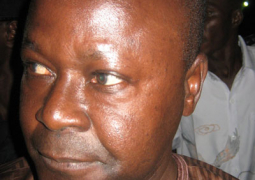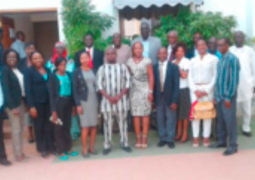The United Nations Development Programme (UNDP)
The discussion entitled “The UNDP Development Forum Series”, sought stimulated intellectual debates and informed the policy making process, as well as provided an avenue for sensitization, exchange of best practices, information sharing and consensus building on key development issues.
Convened on a regular basis, Tuesday’s forum, among others, centered discussions on measuring how far has
Speaking at the forum, Baboucarr Bouy, Permanent Secretary at the Ministry of Basic and Secondary Education, said that the Gambia’s education sector is a signatory to the Education For All (EFA) goals and is committed to achieving the education related MDGs. The policy objectives, he added, are harmonized with Vision 2020, the country’s Poverty Reduction Strategy Paper, Education For All and the MDG education related goals.
According to Buoy, MDG 3 seeks to eliminate gender disparity in primary and secondary education preferably by 2015 and in all levels of the education not later than 2015.
He noted that the net enrolment rate for lower basic education is 77% including the madarassas, while the literacy rates for 15 to 24 year old is 55%.
Some of the remaining gaps, PS Bouy went on, includes 66.8% of the 7 to12 year old who are attending primary school and 33.2% of them are not attending.
He added that out of this, 55.3% are male and 25.4% are from the urban areas, while the remaining 74.6% is from the rural areas.
He revealed that some of the reasons for others not attending school includes religious belief (48%), education expenses (26%), children too young (13%), education facilities too far (1.6%) and education not useful (2%). He added that the education sector has taken a giant stride by introducing literacy, numeracy and skills acquisition classes in selected koranic schools.
Ms Juldeh Ceesay, Director of aid coordination program/projects and monitoring and evaluation, ministry of Economic Planning and Industrial Development, also delivered a presentation which centered on MDG5.
She revealed that diarrhea and malaria remain leading causes of the death of children under five years old, while maternal mortality is estimated at 730 deaths per 100, 000, which remains one of the highest in West Africa.
According to her, major contributors to ill health and the disease burden include the poor state of the environment in which most of communities are living.





